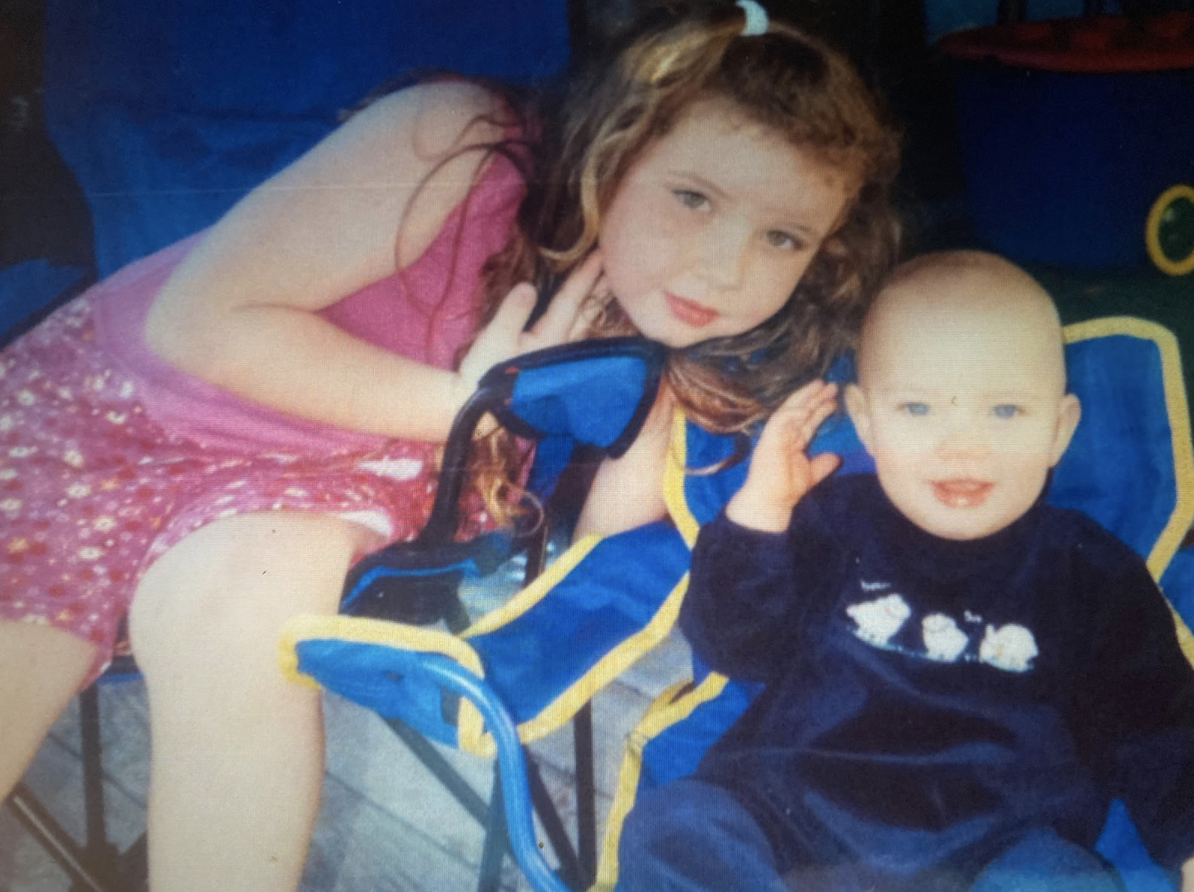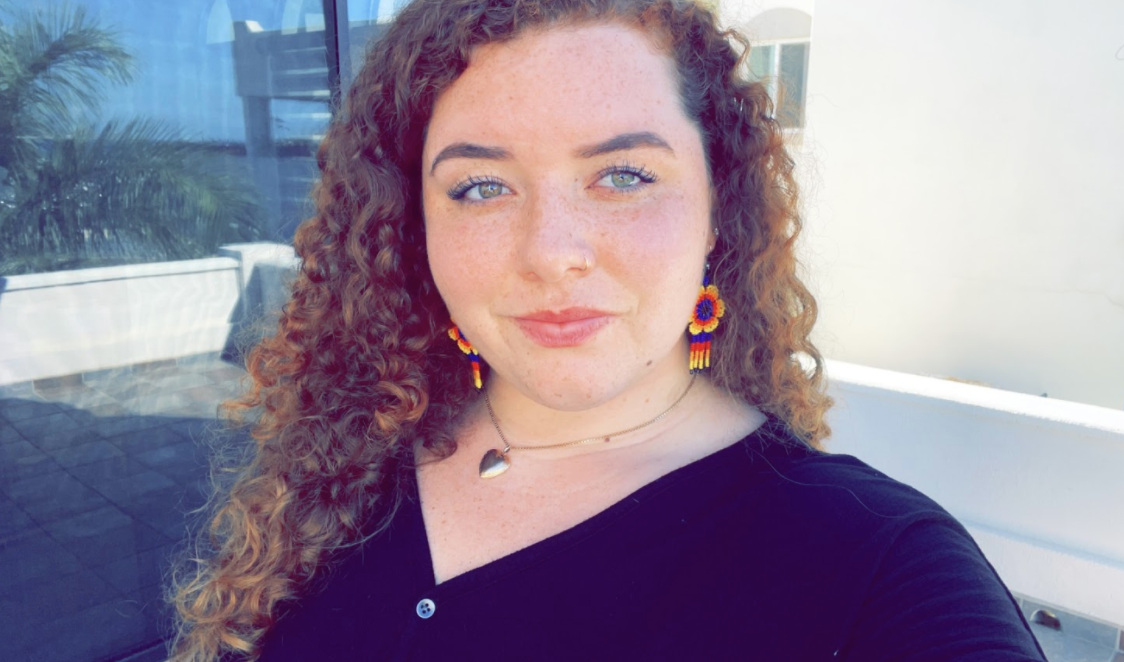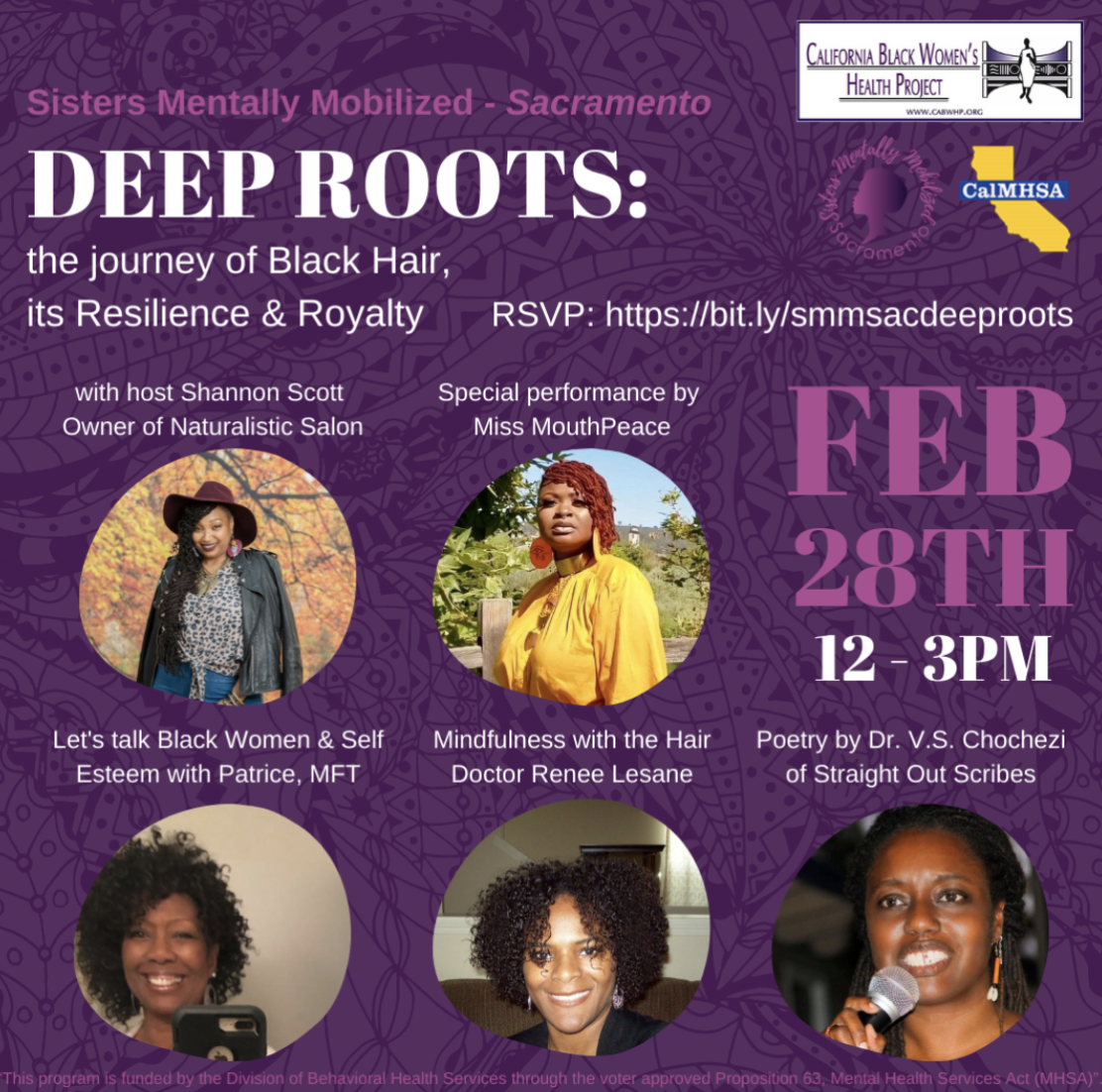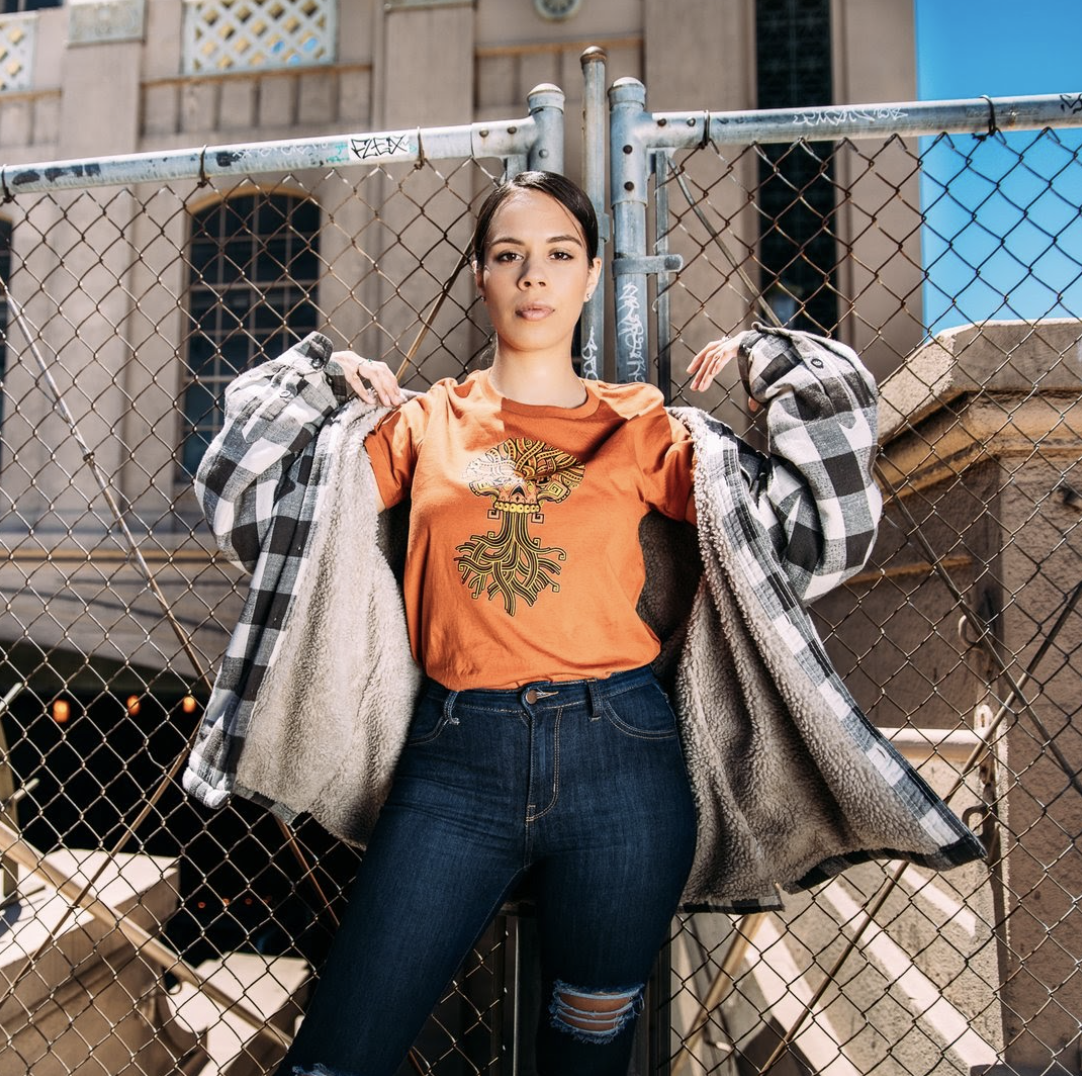By Sydney Williams
Sydney and her little brother Judge.
Oakland, California. 2002, 5 years old.
Black isn't just the color of a crayon
As a little girl, I would draw pictures of my family using brown crayons for my Dad and peach for my Mother. As a kid, race is not something you think about. There are the people you know, the people you love, and yourself, and that’s it.
I remember riding in a packed car with my cousins and one of them said something about my dad being Black. I asked what he meant and he told me that his skin was black, which meant that he was Black. This confused me and I became frustrated. I said “No, my Dad is not black, he is brown! No one has black skin.” My family giggled and everyone turned their attention to me. My cousin began to explain that being Black was not a bad thing and it also didn’t mean that you had to be as black as a black crayon. He explained that although my skin was fair, I had African blood pumping through my veins, which meant that even I was part of Black culture. I was connected to the music, food, stories, and life that is African American heritage.
This was the moment that I was introduced to the concept of ethnicity and that race and belonging are not as simple as colors in a Crayon box.
Sydney and Marina. Marina has been Sydney’s lifelong best friend. She is a biracial woman of Korean and Mexican descent and is a first generation American citizen.
Piedmont, California. 2005, 8 years old.
We live here
We moved to a new home in Piedmont, California, an affluent and predominantly White enclave surrounded on all sides by Oakland.
Ours was one of the very few interracial families in the city, a fact that we were constantly reminded of at school, work, sports, and social events. I noticed my classmates and their families seemed to be always watching my parents when we were in public. At the time, I didn't understand why my dark-skinned Dad wore his Piedmont baseball hat every time he left the house as if it were his uniform, a bullet proof vest requirement to be safe and accepted in town.
While I was and still am well-liked by my peers, I often felt that it was under the condition that I conform to what is most comfortable for others to understand. My brothers and I were told to always be on our best behavior. It wasn't just because it was courteous and good habit, but because we were, in many ways, responsible for shaping our communities’ perception of people like us. When White friends and their families learn that I am biracial, the most common response has always been, “It’s alright honey, you can barely tell," suggesting that I should feel shame if my Blackness was more visually apparent. This is still the most frequent form of discrimination that I encounter.
Even as a child, I felt that we had to prove that not only did we live in Piedmont, but that we belong there.
Sydney, Judge, and parents Dawn and Michael at University of Hawaiʻi at Manoa Graduation 2019. Sydney also has an older brother, Mike Jr., who is not pictured.
Oʻahu, Hawaiʻi. 2019, 22 years old.
Prejudice exists in all places
After my freshman year of college at a NorCal State school, I took a leap of faith and moved to Oʻahu, Hawaiʻi to finish my education. There, I found myself surrounded by more ethnically- and culturally-diverse people than ever before. It was not a melting pot, but more like a mosaic, with people from across the world in your town all the time, bringing their cultural tendencies and beauty along in their carry ons.
At this time of my life, my Black side was no longer considered the offensive part of me. Instead, it was my Whiteness. Hawaiʻi has a long history of European colonizers coming to their land and forcing their “righteous” ways upon the Hawaiian Kingdom. It comes as no surprise that locals do not want their land and culture further diluted, which in essence is what every tourist and non-native on the islands are doing. They call us "haole" which translates to "no breath." Its original use was simply to identify foreigners, most commonly for Europeans who were known to not respect Hawaiian land. Today, it is a derogation, and I cannot even count how many times it was used against me.
It never feels good to have assumptions made about you, in this case -- that I did not respect or belong on Hawaiian land. Even still, my sympathies are with the Kanaka (Native Hawaiian people) and their efforts to restore sovereignty to the Hawaiian Kingdom.
Sarah and Sydney at Oakland Tech rally for Black Lives Matter. Sarah is a great friend and supporter of Sydney’s biracial identity.
Oakland, California. 2020, 23 years old.
Quiet Your Voice
I wholeheartedly identify as a biracial American woman. I am of African and Irish descent, and identify equally with both. Genetics are a coin toss. Even an identical mix may come out with different traits. I happen to be fair skinned with freckles, red hair, and green eyes--what sounds, for all intents and purposes, White.
I was raised in a multiracial family, where very few are as fair complexioned as I. When surrounded by Black culture, I am comfortable, until someone comments about a White Card. What is a White Card? It is the presumed pocket ace. Being White-passing is a blessing and a curse. A blessing because I have the privilege of protections against pre-judgement on the basis of being a minority. A curse because I may never be fully accepted by the community in which I feel most culturally connected to.
It’s June 1, 2020 and I’m stepping out to attend a march in support of Black Lives Matter and to commemorate the lives of George Floyd, Breonna Taylor and many others. Thousands of people of all ethnicities are marching in solidarity for one common goal -- racial justice. I’m overcome with feelings of unity, acceptance and most of all, hope. Caught in the passion of the moment, I find myself leading chants for hundreds of people as we march from Oakland Tech High School to Oscar Grant Plaza. I have never felt so empowered and supported. Then suddenly, my mind flashes back to the opening remarks of the young adults who organized this march. I remembered speakers saying, “White voices should not be louder than Black voices here!” and that their spotlight should not be stolen. Chills run down my back. Few people can tell that I am biracial by my appearance, and certainly even less of them would think I am Black. I’m literally yelling at the top of my lungs, the loudest voice for blocks in either direction and now I’m dripping with a feeling of shame. I wonder if maybe I’m sending the wrong message, or coming across as one of those dreadful people who attend protests for more Instagram likes.
I went from feeling powerful and strong to anxious and sheepish in a matter of seconds. Where is my place in this movement?
Oakland, California. 2021, 24 years old.
This is my time
Let’s set the story straight for a moment -- activism and peaceful protest was a part of me before I was even born. My father and his family grew up in Oakland in the 1960s and 70s, better known to many as the Black Panther era. To this day, I see photos of Huey Newton and the Black Panther Party with my uncles marching right alongside him.
I took my passion for social justice to fuel my journey toward a BA of Sociology with focuses in racial and ethnic relations and a minor in Political Science. When I say that I was born to participate in this revolutionary time for Black lives and racial equality, I mean it.
The thing about the pandemic that scares me the most is the way it limits our freedom to assemble. Even with technology, it’s just not the same. As a young girl, I watched the Bay Area rally together when justice was not served after the deaths of Oscar Grant, Michael Brown and so many other innocent Black women and men. I was inspired and moved by the power behind the great masses assembling to demand reparations. And here we are, in a pandemic, where the safest place to raise your voices against racial violence is at home.
As a young adult with a passion for social justice, this is my time. My time to be loud and heard and acknowledged. Yet no matter how loud I shout out the words of my movement, it is muffled by a mask and hushed by our separation. Can anyone hear me?






















